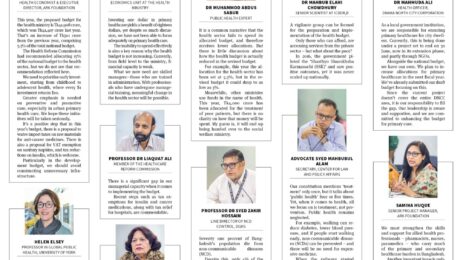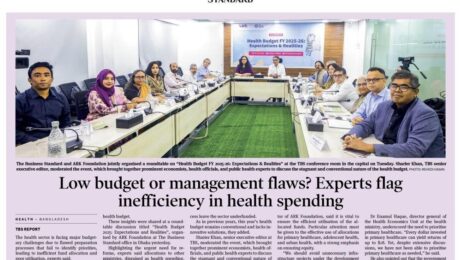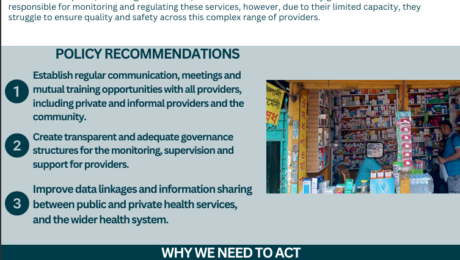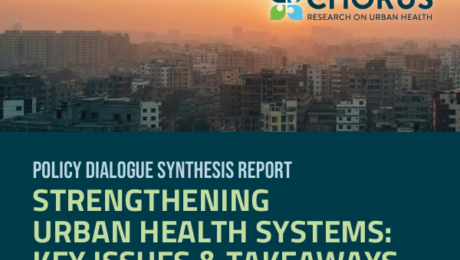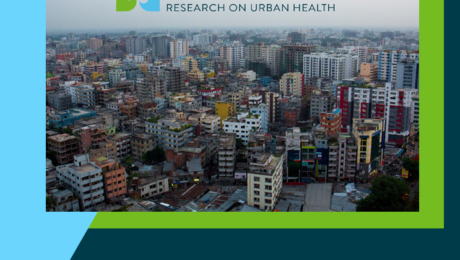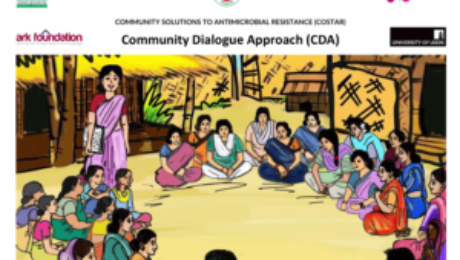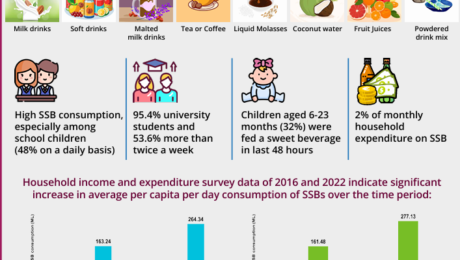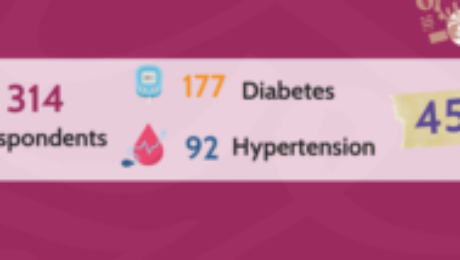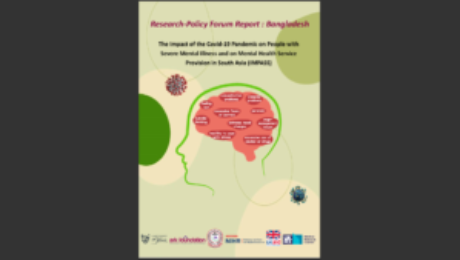PDF Version The health sector is facing major budgetary challenges due to flawed preparation processes that fail to identify priorities, leading to insufficient fund allocation and poor utilization, experts said. They also said there is a lack of managerial efficiency, as well, in implementing health budget. these insights were shared at a roundtable discussion titled
- Published in Featured, News, News and Media
No Comments
PDF Version Highlights: Flawed preparation blamed for failing to identify priorities Despite potential, primary healthcare underfunded Managerial inefficiency hampers fund utilisation NCDs underprioritised despite rising deaths Women, child health budget cut again Need skilled managers, better planning Private sector unregulated, inequitable care Budget usually slashed significantly in revisions The health sector is facing major budgetary
- Published in Event, Featured, News, News and Media
Due to the rapid increase in the urban population, public sector health services in urban settings are under strain. There are limited accessible and available health facilities with insufficient medicines and supplies and inadequate health workers with training appropriate to the changing disease burden in the public health system. Over time, these gaps in the
- Published in Policy Brief, Resources
The Community-led Responsive and Effective Urban Health System (CHORUS) is a research programme consortium that unites health researchers from Africa, South Asia, and the UK. It collaborates with communities, health professionals, and city-level decision-makers to develop and test strategies aimed at improving the health of the poorest urban residents. CHORUS and ARK Foundation hosted
The Community-led Responsive and Effective Urban Health System (CHORUS) is a Research Programme Consortium that brings together health researchers from Africa, South Asia, and the UK. CHORUS collaborates with communities, health professionals, and city-level decision makers to develop and test strategies for improving the health of the poorest urban residents. As part of its ongoing
By Abdullah M. Rafi (published in The Business Standard on 15 May, 2025) Bangladesh, one of the fastest-growing economies in the world according to the World Bank, has identified health as both a priority and a persistent challenge. Article 15(a) of the country’s constitution reflects this commitment by guaranteeing healthcare as a fundamental right for
- Published in News, News and Media
This flipbook is an intervention material developed under the COSTAR project to be used by the Community Dialogue Facilitators (CDA) facilitators in different sub-districts of Cumilla. The CDA Facilitators used this flipbook to create awareness among the local people in their villages on Antimicrobial Resistance (AMR) and its harmful consequences. This is an open access materials
- Published in Infographics, Resources
Demographic, and epidemiological transitions are taking place and tackling the rising burden of non-communicable diseases (NCDs) are challenges in achieving universal health coverage (UHC) in the country. Though the national health budget supports health care, 74% of total health expenditure is met by households out of pocket (OOP) which is the second highest in South-East
- Published in Project Brief, Resources
The Impact of the Covid-19 Pandemic on People with Severe Mental Illness and on Mental Health Service Provision in South Asia (IMPASS) Research-Policy Forum Workshop in Bangladesh was held on 20th June, 2022, organized by IMPASS research team at ARK Foundation in partnership with National Institute of Mental Health (NIMH). Prof. Rumana Huque, Executive Director,
- Published in Policy Brief, Resources

